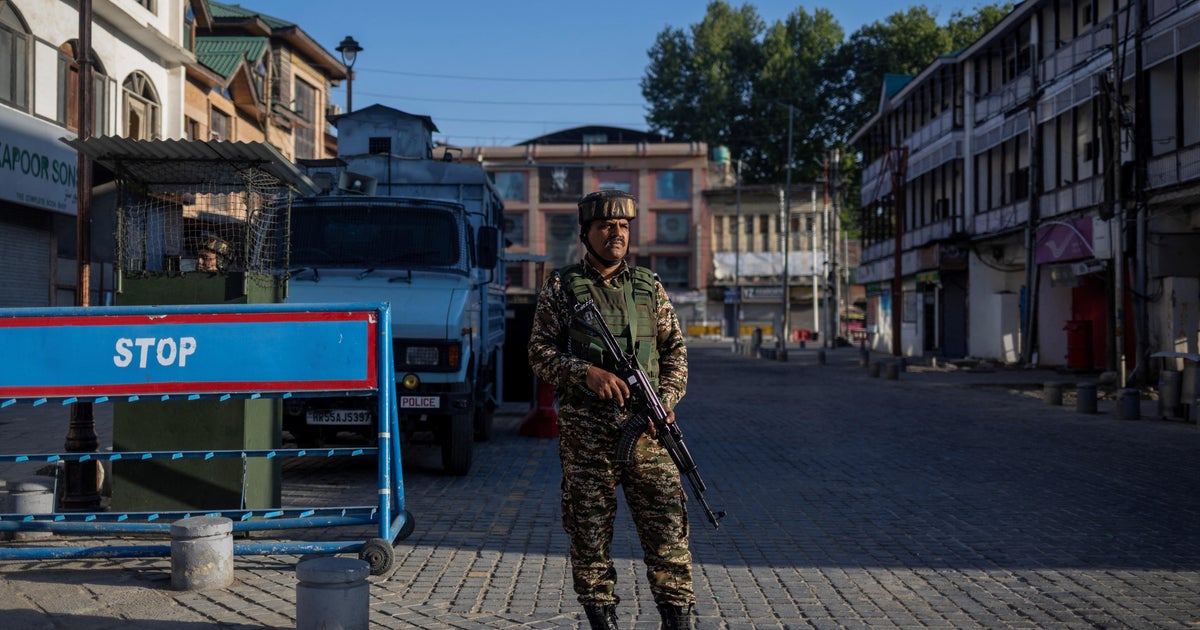Pakistan said on Wednesday that it had ‘’credible intelligence’’ that India might launch a military strike against it within the next few days.
Meanwhile, Indian Prime Minister Narendra Modi led a series of security meetings on Tuesday and Wednesday, adding to speculations of an impending Indian military operation against its archrival, after the April 22 attack on tourists in Pahalgam in Indian-administered Kashmir in which 26 people were killed.
Since the attack, barely existent relations between the nuclear-armed South Asian neighbours have nosedived further, with the countries scaling back diplomatic engagement, suspending their participation in bilateral treaties, and effectively expelling each other’s citizens.
However, a diplomat and Nigeria’s ex-ambassador to Pakistan told Daily Trust that the Kashmir conflict remains a deeply entrenched issue between India and Pakistan, rooted in the partition of British India in 1947.
What happened?
Pakistan’s Information Minister Attaullah Tarar said in a televised statement early on Wednesday that Islamabad had “credible intelligence” that India was planning to take military action against his country in the “next 24 to 36 hours”.
Tarar added that the action would be India’s response on the “pretext of baseless and concocted allegations of involvement” in Pahalgam. While India has alleged Pakistan’s involvement in the Pahalgam attack, Islamabad has denied this claim.
India and Pakistan each administer parts of Kashmir, but both countries claim the territory in full.
Tarar’s statement came a day after Modi gave the Indian military “complete operational freedom” to respond to the Pahalgam attack in a closed-door meeting with the country’s security leaders, multiple news agencies reported, citing anonymous senior government sources.
On Wednesday, Modi chaired a Cabinet Committee on Security meeting, the second such meeting since the Pahalgam attack, state-run Doordarshan television reported.
Meanwhile, as the neighbours continued to exchange gunfire along the Line of Control (LoC) dividing Indian and Pakistan-administered Kashmir, other world leaders stepped up diplomacy to calm tensions.
“We are reaching out to both parties, and telling them not to escalate the situation,” a United States State Department spokesman told reporters on Tuesday, quoting US Secretary of State Marco Rubio, who is expected to speak to the foreign ministers of India and Pakistan.
Also on Tuesday, the spokesman for United Nations Secretary-General Antonio Guterres said he had spoken to Pakistan Prime Minister Shehbaz Sharif and Indian Foreign Minister Subrahmanyam Jaishankar, offering his help in “de-escalation”.
Why India will not attack Pakistan – Ambassador Dahiru
Ambassador Suleiman Dahiru traced the origins of the dispute during an interview with Daily Trust last night.
He explained that the British decision to create Pakistan was driven by the need to provide a homeland for the Muslim minority in India, who faced persecution due to their religion.
“Before India got independence from the British, the British decided that the Muslim minority in India, who were being persecuted because of their religion, should form their own country—Pakistan,” Dahiru said.
He added that the partition led to the creation of West Pakistan and East Pakistan, the latter eventually becoming Bangladesh after years of civil war.
However, the division left the region of Kashmir divided between India and Pakistan, with both nations claiming sovereignty over the territory.
Dahiru highlighted the religious dimension of the conflict, noting, “The Kashmiris who are Muslims would prefer to be with Pakistan, to be controlled by Pakistan, but India will not allow it.”
The unresolved dispute has fueled tensions between the two nuclear-armed nations, resulting in two wars and frequent skirmishes along the Line of Control.
Dahiru emphasised the precarious nature of the situation, stating, “It is what they call in political science mutually assured destruction. The one thing I can tell you why Pakistan and India have not gone into a serious war is because both of them are nuclear powers.”
Despite India’s larger population and military strength, Dahiru warned of the catastrophic consequences of a full-scale conflict. “If Pakistan should find that it is losing the battle, it will now work in its nuclear,” he said, underscoring the potential for devastating escalation.
The ambassador described the restraint shown by both nations as a result of their nuclear capabilities, which act as a deterrent against outright invasion. “I don’t think India will make the mistake of invading Pakistan. It will turn into something else,” he added.
The Kashmir issue remains at the heart of Indo-Pakistani relations, with no resolution in sight.
Dahiru cautioned against external attempts to mediate, noting that even powerful nations like the United States have failed to resolve the conflict. “Nobody has been able to solve the problem,” he concluded, highlighting the enduring complexity of the dispute.












